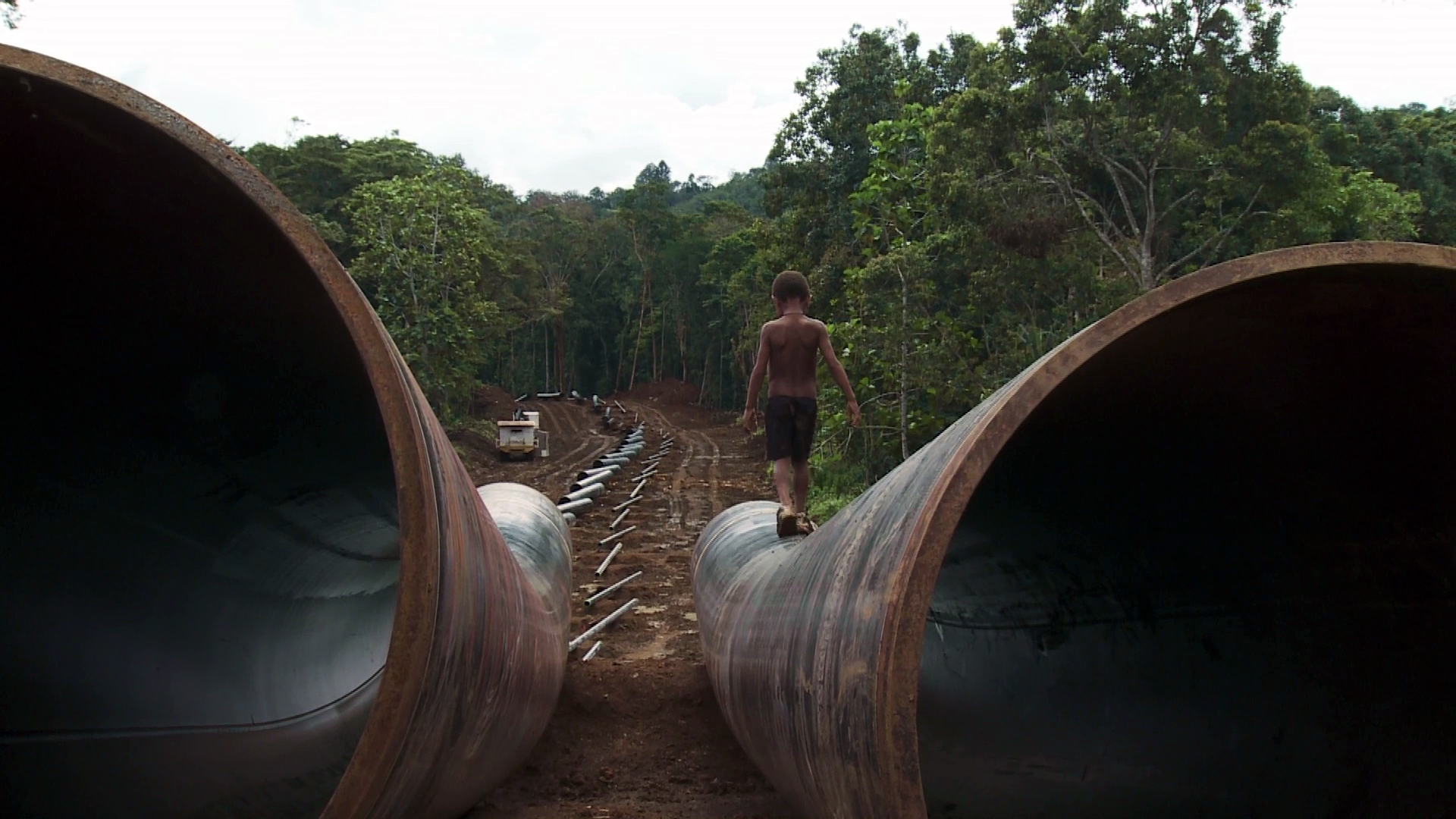- Blog
- Food & Agriculture
- ExxonMobil + Exim Bank = Tragedy in Papua New Guinea
ExxonMobil + Exim Bank = Tragedy in Papua New Guinea

Donate Now!
Your contribution will benefit Friends of the Earth.
Stay Informed
Thanks for your interest in Friends of the Earth. You can find information about us and get in touch the following ways:
In a powerful new video, When We Were Hela, Pulitzer Prize – winning journalist Ian Shearn takes us to the jungles of Papua New Guinea, where a massive natural gas project has caused death and destruction in local communities. The story in his video, as well as in his in-depth article in The Nation, centers around a $19 billion liquid natural gas project built by ExxonMobil and financed by the US Export-Import Bank. In 2012, a landslide in the project area buried 27 people — a tragedy that the company and the PNG government called an “act of God,” but that internal ExxonMobil reports indicate were entirely predictable.
Everyone has heard of ExxonMobil, and twenty five years after the Exxon Valdez disaster, plenty of people today refuse to buy gasoline at Exxon stations. But fewer people have heard of the Export-Import Bank. The remit of this little-known government agency is to support US jobs by promoting and financing exports. But in the last several years, the agency has looked like little more than a giant subsidy to wealthy fossil fuel companies. As President Obama says in the beginning of the video, “We’ve subsidized oil companies for a century. That’s long enough. It’s time to end the giveaways to an industry that has rarely been more profitable, and double down on a clean energy industry that has never been more promising.”
Congress debated upping Exim bank’s support for clean energy during the agency’s last re-authorization, but instead increased the agency’s overall financing authority without requiring it to fund more renewables. In addition, the House version of the bill proposed establishing an independent accountability mechanism which would allow communities harmed by Exim bank financing decisions to seek recourse. Unfortunately, the Senate did not concur, and today communities in Hela and elsewhere cannot hold Exim accountable for the destruction caused by the projects it bankrolls.
And so, Exim bank continues to binge on fossil fuels with little accountability. These dirty energy projects not only exacerbate climate change, but, as illustrated by the tragedy in Hela, they can have devastating consequences on local communities. And the impacts fall not just on communities in far-flung places. Last summer, Friends of the Earth and other environmental groups sued Exim for failing to properly assess the local health and environmental impacts of a coal export project in Virginia and Maryland (read stories from four affected residents here).
In November, 75 groups from sub-Saharan Africa wrote to the Obama Administration expressing concerns about the Power Africa initiative, an effort that, under the guise of energy access, would likely open the door for even more Exim bank fossil fuel deals. The groups were writing from their own experience dealing with dirty energy projects on the continent — but they could easily have been writing about the experience in Papua New Guinea:
We do not need to poison communities in Africa to develop sustainably… the development model pushing large-scale infrastructure and power projects rarely, if ever, alleviates poverty. Instead, such projects exacerbate inequality and conflict, devastate the environment, and frequently involve human rights violations (i.e. the well-documented “resource curse”). These projects do not help us at home but rather are for export and to line the pockets of multinational corporations and local elites.
Like you, we feel a great sense of urgency to address the pervasive energy poverty found in most African countries. It is shameful that in 2013, more than two-thirds of sub-Saharan Africa’s population lacks electricity, with that number growing to more than 85 per cent in rural areas.
We are therefore working hard to bring decentralized, truly clean, community-controlled renewable energy to all of our people. We do not need to poison communities in Africa in order to develop sustainably.
– See more at: /news/archives/2013-11-75-african-groups-demand-obama-stop-pushing-dirty-en#sthash.Y9C7VDpi.dpuf
Like you, we feel a great sense of urgency to address the pervasive energy poverty found in most African countries. It is shameful that in 2013, more than two-thirds of sub-Saharan Africa’s population lacks electricity, with that number growing to more than 85 per cent in rural areas.
We are therefore working hard to bring decentralized, truly clean, community-controlled renewable energy to all of our people. We do not need to poison communities in Africa in order to develop sustainably.
– See more at: /news/archives/2013-11-75-african-groups-demand-obama-stop-pushing-dirty-en#sthash.Y9C7VDpi.dpuf
